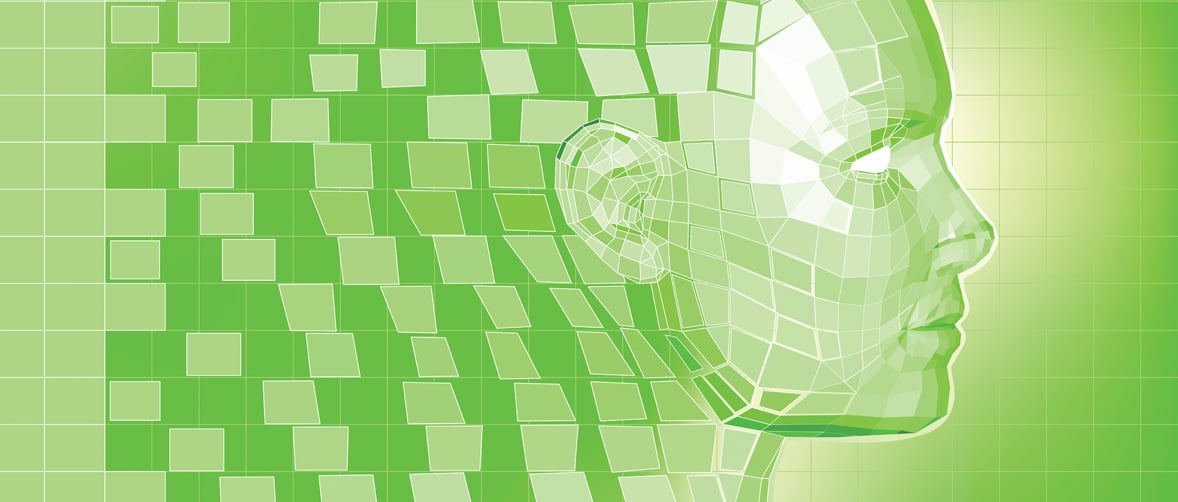The German economy is firmly in the grip of the virus. According to the ifo Institute’s most recent calculations, the country’s gross domestic product could shrink by 6.3 percent this year. Whereas the central government and state administrations have responded to the crisis with billions of euros in aid packages, the internet and digital technologies are also evidently helping to reduce its severity. IT infrastructure services, such as colocation and cloud hosting services, in conjunction with optimum interconnectivity and network security, are gaining in significance and their potential is far from being exhausted. We have defined four essential pillars that are worth investing in today to more effectively equip the German economy for the future.Pillar 1: Secure IT infrastructure
Enterprises are well advised to build their IT infrastructures on the efficient and secure foundations of colocation data centers so that they can take advantage of existing opportunities and get back on track quickly when the crisis is over. This approach frees enterprises of all sizes – from SME to international corporation – from their capacity limitations and offers the added bonus of optimum data security. Modern data centers provide a comprehensive range of services to facilitate reliable and highly scalable IT operations. For example, maincubes SLAs (Service Level Agreements) guarantee 100% uptime and 24/7/365 availability. Computing resources can be flexibly deployed in accordance with the customer‘s needs and a professional team of technicians and engineers are permanently on call to provide maintenance and other services.
Pillar 2: Interconnectivity improves performance
When we are separated as the result of a virus-associated lockdown, digital solutions help friends and families to stay in contact with each other. The same applies to the business world. In fact, multiple supply and cooperation chains are essential in our increasingly networked global economy. Data centers assume a Point of Presence (PoP) or interface function to create a dense data and communication network that enterprises can access to interconnect. This interconnectivity gains additional momentum and data transmissibility if a data center is connected to a major internet exchange. For example, maincubes‘ FRA01 data center is directly connected to DE-CIX in Frankfurt, the largest internet exchange of its kind worldwide.
Pillar 3: Smart business with digital eco-systems
We need digital platforms in addition to physical networks in order to exploit the full potential of interconnectivity. Digitalization has already helped big players like Amazon, Uber and AirBNB to build platforms that revolutionized entire industries. The disruptive forces that were at play back then are even more evident in the current situation. Companies will only be able to keep pace with competitors if they link up across platforms to create digital ecosystems. Like their natural counterparts, these ecosystems continuously evolve, adapt and expand. The members of an ecosystem profit from being able to use each other’s services, share information, and initiate agile learning processes that create new solutions. At the same time, ecosystems make resource use more efficient and flexible because the resources are made available mutually rather individually. secureexchange® is maincubes’ digital platform. It offers cloud, IoT, security, network and various other services to users on a needs-oriented basis. Being part of this kind of ecosystem allows an enterprise to optimize its business processes and play a proactive role in shaping the market. Ultimately a smart economy with highly flexibly mechanisms is created that allows the continuous calibration of individual processes and entire business models.
Pillar 4: Make practical use of opportunities
Although the smart economy is still in its infancy, the associated opportunities have been made abundantly clear by the current crisis. Brand new possibilities exist, even for sectors that have not yet embraced the digital transformation: from getting started in e-commerce to virtual training or cooking courses and household repair support services. In the current situation the people providing these services are viewed as pioneers. In the future they may well become the norm, and this is where the biggest opportunities lie: in adding digital services to formerly pure analogue business models to make them ready for the smart economy. The same applies to the manufacturing industry. IoT devices and cloud-based systems allow remote process control and monitoring. M2M networks also enable far more comprehensive process analyses as the basis for more efficient and flexible production and faster growth in output.
Take the initiative now
Digitalization and the associated objective of establishing a smart economy expose all sectors of industry to new opportunities. The onus is obviously on the individual enterprises to take the initiative themselves, yet the political and economic stakeholders also have a duty to make the right decisions. We need comprehensive investments in the development of the digital infrastructure: investments in fast nationwide networks, in the modernization and digitalization of machines and equipment, and in training and education. Politics and industry should also support efforts to comprehensively switch to renewable energy and introduce the efficient hardware resource management. maincubes‘ eco-friendly data centers and the first European OCP (Open Compute Project) Experience Center, where companies can optimize their hardware, show that data center sustainability is already a reality. It is ideas and innovations like these that will bring about a permanent transition into the digital age.
